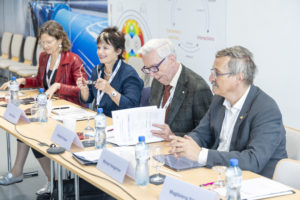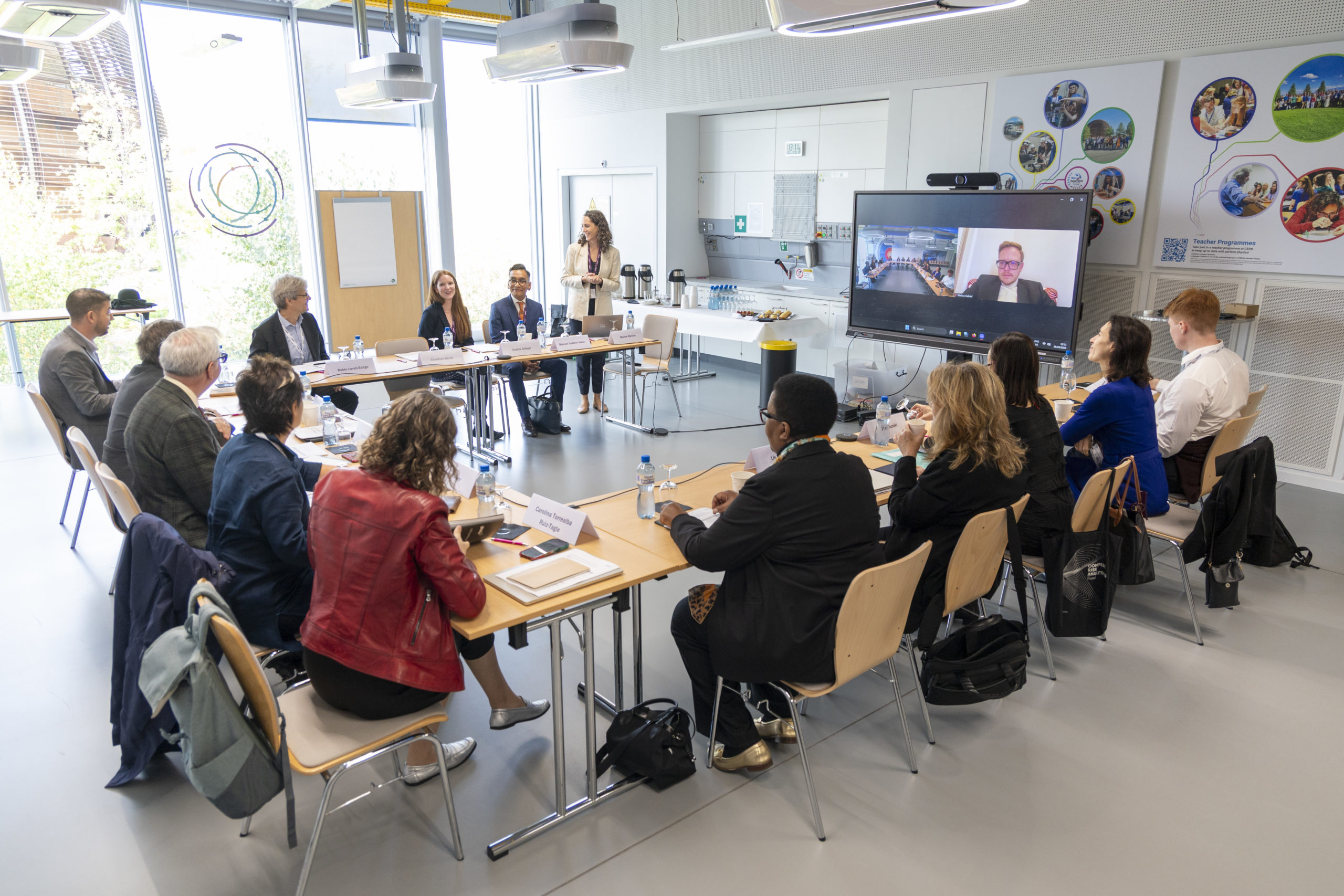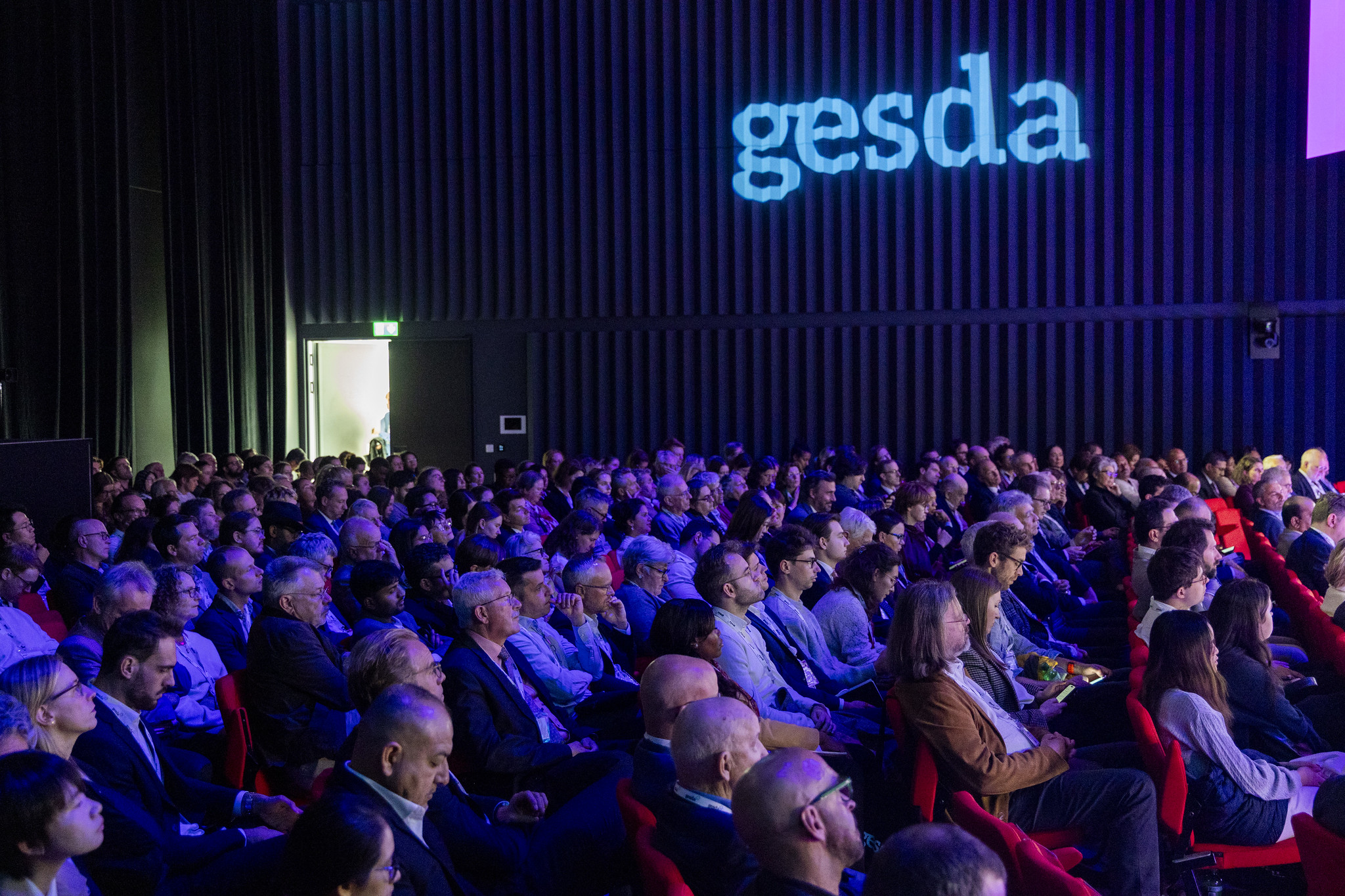High-Level Review of the GESDA Science Breakthrough Radar launches at 2025 GESDA Summit
Since 2021, GESDA has released the GESDA Science Breakthrough Radar®, a landmark anticipatory mapping of emerging scientific breakthroughs. This year, at the Geneva Science and Diplomacy Anticipation Summit, the fifth edition of the Radar was unveiled by Prof. Michael Hengartner, President of the ETH Board and Chair of GESDA’s Academic Forum
Since the first edition in 2021, the Radar has grown significantly, building on the expert anticipatory insights of over 2 300 active scientists worldwide and now encompassing more than 40 emerging topics. Rooted in a robust methodology for science anticipation, the Radar has expanded in breath, depth and quality in step with GESDA’s own institutional growth and experience. While this process of refinement has allowed it to develop into a mature and widely recognised tool for science anticipation, GESDA now wants to take a more intentional approach to its future development. As Prof. Hengartner remarked in his address at the Summit, “we would be remiss if we didn’t use our own technology on ourselves” – to look at the future of the Radar and take agency in shaping its development, ensuring it achieves its full potential.
The GESDA Science Breakthrough Radar High-Level Review
In keeping with GESDA’s commitment to scientific rigour – and to the principle of peer-review as a driver of improvement – we are conducting a High-Level Review of the Science Breakthrough Radar and its underlying methodology. To this end, we have convened an independent panel of experts from across the global scientific community; Chaired by Professor Stephen Toope OC FRSC LLD, President and CEO of the Canadian Institute for Advanced Research (CIFAR), the Review Committee brings together leaders of major research institutions – both public and private – and distinguished researchers holding positions at the interface between science, science advice and society. Over the coming months, the Committee will come together to review GESDA’s science anticipation work – examining the scope of its content and the robustness and flexibility of its methodology, as well as the structure and format of the outputs it generates and the effectiveness of GESDA’s engagement with the global research community.
The Radar High-Level Review Committee is composed of:
- Stephen Toope – President and CEO of the Canadian Institute for Advanced Research; Chair of the Review Committee
- Anna Fontcuberta i Morral – President of the École Polytechnique Fédérale de Lausanne
- Teruo Fujii – President of the University of Tokyo
- Markus Gabriel – Professor and Chair in Epistemology, Modern and Contemporary Philosophy, Director of the Center for Science and Thought, University of Bonn
- Anne Glover – Special Advisor to the Principal at the University of Strathclyde and President of the Royal Scottish Geographical Society
- Hiroaki Kitano – Executive Deputy President and Chief Technology Officer at Sony Group Corporation
- Lise Korsten – President of the African Academy of Sciences
- Alondra Nelson – Harold F. Linder Professor at the Institute for Advanced Study
- Carolina Torrealba Ruiz-Tagle – Vice-Rector Research of Andrés Bello University
- Patrick Verkooijen – CEO of the Global Center on Adaptation and Chancellor of the University of Nairobi
The Radar High-Level Review Workshop
The Radar High-Level Review launched its activities during this year’s GESDA Summit, with a private workshop bringing the Review Committee together with GESDA Board members Michael Hengartner, Magdalena Skipper and Lindiwe Majele Sibanda, as well as select Radar contributors and stakeholders, and the GESDA science anticipation team.
The workshop presented a unique opportunity for the Committee to learn about GESDA’s science anticipation activities from the scientists actively involved in this work, through both an engaging panel discussion with Professors Robin Lovell-Badge and Christian Happi – academic Chairs on two of GESDA’s Anticipation Committees – and a thought-provoking presentation by Professor Sabina Leonelli on her Radar-based Science Lens on the Future of Research. Importantly, the Committee also heard and benefited from invaluable insights from Ayaka Suzuki, Director of the Strategic Planning and Monitoring Unit in the Executive Office of the Secretary-General at the United Nations, on the need to bridge the gap between science and policy makers and the strategic value of science anticipation for multilateral diplomacy.
Collectively, these exchanges sparked a candid and forward-looking discussion on the Radar and how GESDA’s practice of science anticipation might evolve to maximise use and impact, providing a valuable foundation for the Committee’s review.
What’s next
Following this high-level introduction to GESDA’s science anticipation work and the important mission it serves, the Review Committee will now explore and critically assess the anticipatory intelligence presented in the 2026 GESDA Science Breakthrough Radar, and the process and methodology behind it, before coming together again for the official Review Meeting taking place in February 2026.
For more information: https://www.gesda.global/gesda-science-breakthrough-radar/high-level-review/












